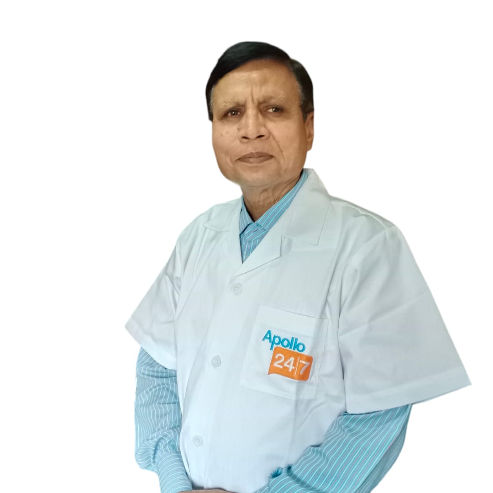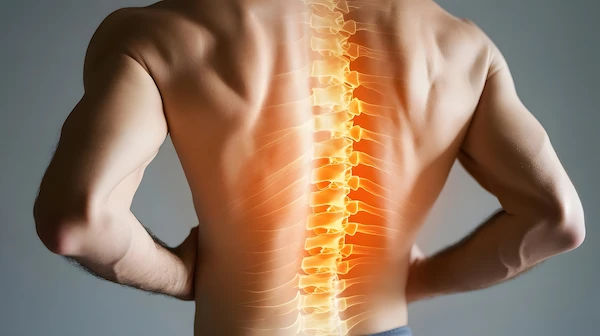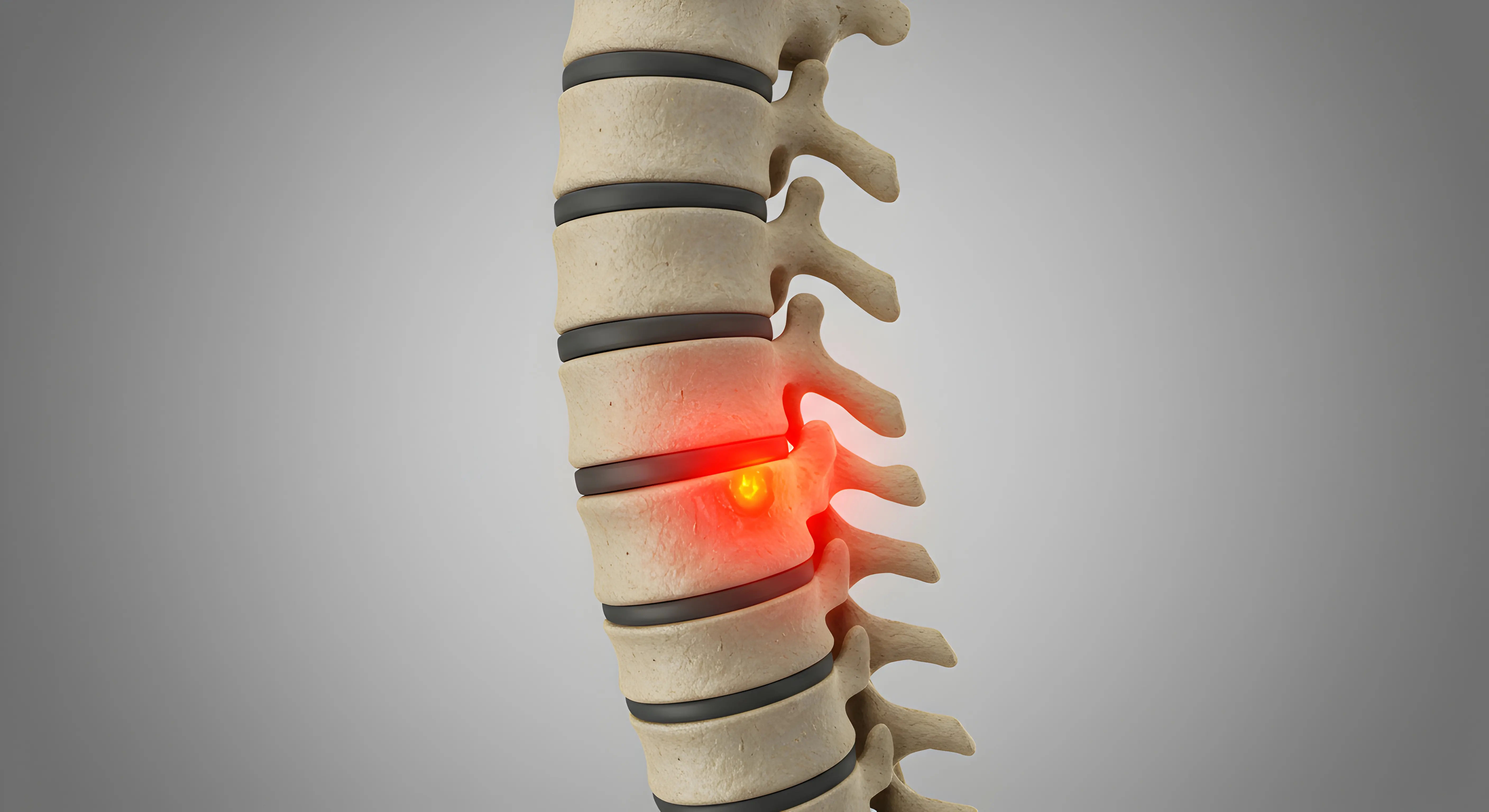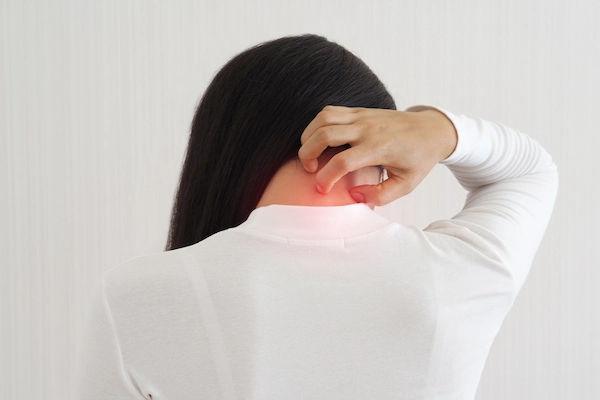Cervical Spondylosis Overview and Care Options
Cervical spondylosis, also known as neck arthritis, is a common condition caused by age, posture, or injury. Learn its symptoms, causes, diagnosis, and effective care options.


Cervical spondylosis is a common age-related condition that affects the neck's bones, discs, and joints. Often referred to as "neck arthritis," it occurs due to wear and tear of the cervical spine (the part of the spine in the neck). While it is more common in older adults, younger people who spend long hours sitting, working on computers, or maintaining poor posture can also develop it.
The good news is that cervical spondylosis is manageable with the right care, lifestyle changes, and medical guidance. This article will help you understand the condition, its symptoms, causes, and ways to improve your neck health.
What is Cervical Spondylosis?
Cervical spondylosis is a degenerative condition where the vertebrae (bones), discs, and joints in the neck wear down over time. This can lead to stiffness, pain, and sometimes nerve compression, causing discomfort in the neck, shoulders, arms, or even hands.
Common Symptoms
Neck pain and stiffness (worse in the morning or after long periods of inactivity)
Headaches, especially at the back of the head
Numbness or tingling in the arms, hands, or fingers
Weakness in the arms or legs (in severe cases)
A grinding or popping sensation when moving the neck
Dizziness or loss of balance (rare, but possible if nerves or blood vessels are compressed)
If you experience severe pain, weakness, or difficulty walking, consult a doctor immediately.
What Causes Cervical Spondylosis?
Several factors contribute to cervical spondylosis:
1. Aging – As we age, spinal discs lose moisture, making them less flexible and more prone to damage.
2. Poor Posture – Slouching, prolonged phone/computer use ("text neck"), or incorrect sleeping positions strain the neck.
3. Injury or Trauma – Past neck injuries (whiplash, falls) can accelerate degeneration.
4. Repetitive Neck Movements – Jobs or activities that involve frequent neck bending (e.g., driving, painting, desk work).
5. Genetics – Some people may inherit a tendency for faster spinal wear.
6. Smoking & Lack of Exercise – These can weaken bones and muscles, worsening the condition.
How is Cervical Spondylosis Diagnosed?
If you have persistent neck pain or related symptoms, a doctor may recommend:
Physical Examination – Checking neck movement, reflexes, and muscle strength.
Imaging Tests – X-rays, MRI, or CT scans to assess bone and nerve conditions.
Nerve Function Tests – Electromyography (EMG) to check nerve damage.
Early diagnosis helps prevent complications like chronic pain or nerve damage.
How Can You Manage Cervical Spondylosis?
While cervical spondylosis cannot be reversed, its symptoms can be effectively managed with lifestyle changes, exercises, and medical treatments.
1. Lifestyle & Posture Adjustments
Improve Posture – Keep your head aligned with your spine while sitting, standing, or using devices.
Take Frequent Breaks – If you work at a desk, stand up and stretch every 30 minutes.
Use Ergonomic Support – Adjust your chair, desk, and computer screen to reduce strain.
Sleep Smart – Use a supportive pillow (not too high or too flat) and avoid stomach sleeping.
2. Neck Exercises & Stretches
Gentle exercises can strengthen neck muscles and improve flexibility:
Neck Tilts & Rotations – Slowly tilt your head side-to-side and rotate gently.
Chin Tucks – Pull your chin straight back to align your neck.
Shoulder Rolls – Roll your shoulders backward and forward to relieve tension.
(Consult a physiotherapist for personalized exercises.)
3. Pain Relief Methods
Heat/Cold Therapy – Warm showers or ice packs can ease stiffness and inflammation.
Over-the-counter Pain Relievers – Medications like ibuprofen may help (use under doctor’s advice).
Massage & Physical Therapy – Helps relax muscles and improve mobility.
4. Medical Treatments
If symptoms persist, doctors may suggest:
Prescription Medications – Muscle relaxants or nerve pain medications.
Steroid Injections – For severe nerve pain.
Surgery (Rare Cases) – Only if nerve compression causes severe weakness or loss of function.
When to See a Doctor?
Seek medical help if you experience:
Severe, worsening neck pain
Numbness/weakness in arms/hands
Loss of bladder/bowel control (emergency)
Early treatment can prevent complications and improve quality of life.
Prevention Tips
Stay Active – Regular exercise (walking, swimming, yoga) keeps the spine flexible.
Maintain a Healthy Weight – Excess weight strains the neck and spine.
Quit Smoking – Smoking accelerates disc degeneration.
Stay Hydrated – Keeps spinal discs healthy.
Need Help? Consult a Specialist Today!
If you or a loved one is struggling with neck pain or stiffness, don’t ignore it. Early care can make a big difference.
Book a consultation with an orthopedic or spine specialist on Apollo 24|7 for expert advice and personalized treatment. You can also schedule diagnostic tests like X-rays or MRIs for a thorough check-up.
Remember: Cervical spondylosis is common and manageable. With the right care, you can stay active and pain-free!
Consult an Orthopaedic Specialist for Personalised Advice
Consult an Orthopaedic Specialist for Personalised Advice

Dr. Rupam Chowdhury
Orthopaedician
10 Years • MBBS, DNB (Ortho.)
Kolkata
MCR SUPER SPECIALITY POLY CLINIC & PATHOLOGY, Kolkata

Dr. Sudipta Saha
Orthopaedician
8 Years • MBBS,(D. Ortho)
Kolkata
VDC Clinic, Kolkata

Dr. Prashant Kumar
Orthopaedician
10 Years • MBBS,MS Orthopaedics, DNB Orthopaedics
Kolkata
VDC Clinic, Kolkata

Dr. Padam Singh Gautam
General Physician/ Internal Medicine Specialist
43 Years • M.B.B.S (WARDHA M. S.), F.A.G.E. (MANIPAL), F.A.I.M.S. (Pb.), M.A.I.M.S. (Pb.), M.R.S.H. (LONDON)
Noida
Dr Padam Singh Gautam Fracture Clinic, Noida
(250+ Patients)

Dr. Anil Pradeep Jadhav
Orthopaedician
23 Years • MBBS MS (Ortho)
Nashik
Apollo Hospitals Nashik, Nashik
(25+ Patients)


